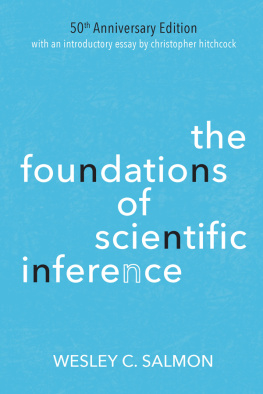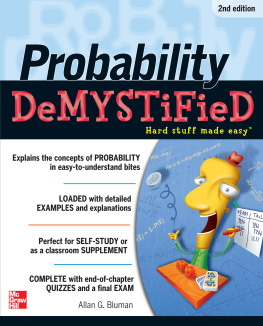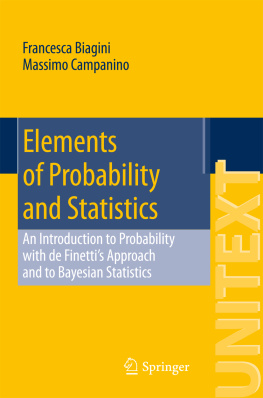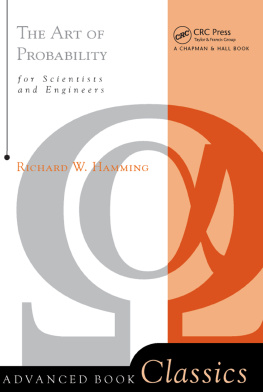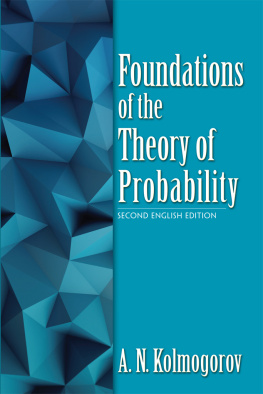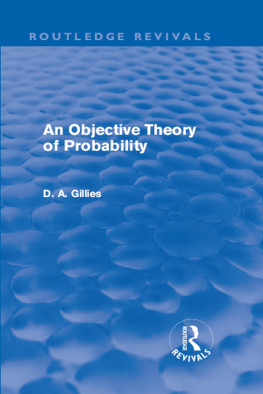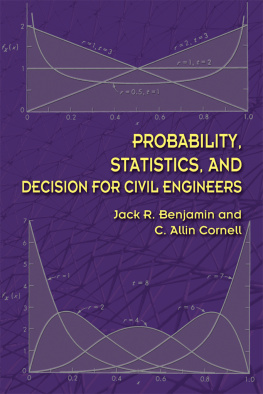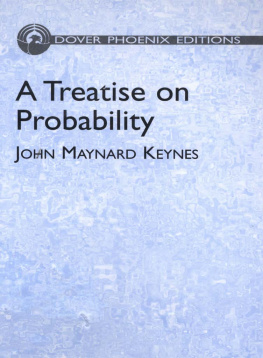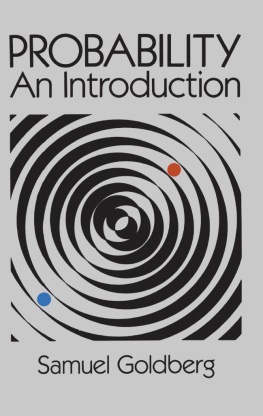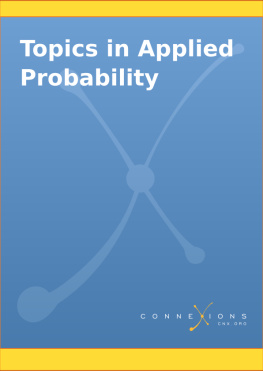Salmons book is written in a clear and elementary style. It has many of the earmarks of a text useful for beginners and advanced students alike.
As a presentation of the primary issues concerning the foundations of scientific inference, this volume can be recommended most highly.
This study admirably fills the need for an elementary survey of problems in the area of probability and induction. A well-written and challenging introduction to the field.
Few current writers have devoted as much worthwhile attention to the problems of induction as Wesley Salmon. It is good to have his views on the subject expressed in a single, clearly written and extremely useful volume. It can be recommended to students of the field at all levels.
Cover design by Joel W. Coggins
Introductory Essay
CHRISTOPHER HITCHCOCK
WELCOME TO THE FIFTIETH-ANNIVERSARY edition of Wesley C. Salmons The Foundations of Scientific Inference. This is the book that taught a generation of students and researchers about the problem of induction, the interpretation of probability, and the logic of confirmation. It is remarkable in that it succeeds in being both an introductory textbook and a scholarly monograph at the same time. It presupposes no background knowledge yet succeeds in articulating and defending a coherent vision of the nature of scientific reasoning.
The Foundations of Scientific Inference (hereafter Foundations) has appealed, and will continue to appeal, to a broad variety of readers. For specialists in the philosophy of science, it shows us how one of the great thinkers of the previous century formulated and conceptualized the central questions about induction and confirmation. For historians, it provides a window into the work of some of the leading philosophers of the mid-twentieth century, including Max Black, Rudolf Carnap, Norwood Russell Hanson, Sir Karl Popper, and Hans Reichenbach. For students of philosophy, and specialists in other areas of philosophy, Foundations provides a clear, accessible, and rigorous introduction to these central topics in the philosophy of science. For scientists andscience students, it provides a first look at the philosophical underpinnings of scientific investigation. And for broad-minded and curious readers of all stripes, it provides a clear taste of what it means to formulate and think ones way through a genuine philosophical problem.
Academic writing is always an optimization problem. There are many goals that a writer is trying to achieve, and these goals are often in conflict. Salmon deftly accomplishes these diverse goals without apparent sacrifice or compromise.
Despite its relatively short length (168 pages), Foundations is sweeping in its scope. The reader is introduced to many of the central movements in epistemology, including the programs championed by Bacon, Descartes, and Kant, in addition to the extended discussion of Humes problem of induction. Indeed, Salmons first three chapters, dedicated to the problem of induction, provide an excellent introduction to the topic of epistemology in general. Foundations also educates the reader about the basics of formal logic and lays out the basic elements of the mathematical theory of probability. Salmon is able to cover so much ground in so little space with prose that is spare and concise, yet it somehow never feels rushed or miserly.
Salmons text presupposes no background in philosophy of science or indeed in any area of philosophy or science. His presentation is accessible to all. And yet he achieves this accessibility without sacrificing precision or argumentative rigor. Of course, some details and advanced topics have been omitted, but nothing has been fudged, dumbed down, or cheaply popularized for the reader. Indeed, it is Salmons desire to make this work accessible to all that forced him to proceed from scratch in such a careful, methodical manner.
Finally, Salmon provides a balanced overview of his central topics without losing his own distinctive voice. Foundations functions like a textbook in providing the reader with a broad survey of prevailing opinion on the topics it treats, but Salmon does not shy away from expressing and defending his own preferred approaches. He does so transparently, never abusing the readers trust in his role as expositor.
In this introduction, I will reintroduce Foundations to the contemporary reader. I will say a little bit about the state of philosophy of science in the 1960s and the major influences on Salmon. I will point to some of the most important contributions made in Foundations and discuss the evolution of Salmons thinking on the major topics covered in the book. Finally, I will say something about its impact. I will not attempt to provide a more detailed overview of Salmons life and work.
Major Themes and Influences
We may, somewhat arbitrarily, divide the contents of Foundations into three major topics. The first, occupying chapters explores the logical structure of the confirmation of scientific hypotheses.
Among the many philosophers whose work Salmon discusses, three play a particularly prominent role: Rudolf Carnap, Sir Karl Popper, and Hans Reichenbach. The first two serve as Salmons primary foils, while Reichenbach had the greatest direct influence on Salmons own thinking. These three scholars are emblematic of the shift in the landscape of philosophy that was triggered by the rise of fascism in Europe. Throughout the 1930s, leading scholars fled the German-speaking countries of central Europe to resettle in English-speaking countries, primarily the United Kingdom and the United States.
Rudolf Carnap was at the University of Vienna from 1926 to 1931 and was a prominent member of the Vienna Circle, an informal group of philosophers and philosophically minded scientists led by Moritz Schlick. They came to be called the Logical Positivists in the English-speaking world, although this is not a name they adopted themselves. Carnap taught at the University of Prague from 1931 to 1935, when he fled to the United States. He taught first at the University of Chicago and then at UCLA. Interestingly, Salmon pursued his masters degree at the University of Chicago while Carnap was there; but at the time, Salmon was interested in the philosophy of Alfred North Whitehead and did not interact with Carnap. Carnap did important work on the foundations of probability and in inductive logic (Carnap 1950, 1952), developing a logical interpretation of probability and a probabilistic account of the confirmation of theories by evidence.
Sir Karl Popper was raised in Vienna, where he interacted with Carnap and other members of the Vienna Circle. He rejected their views, however, and was never considered a member of the circle. He published Logik der Forschung in 1934 (Popper 1959a) while teaching at a secondary school. In 1937, he moved to New Zealand to take a faculty position at the University of Canterbury. After the war, in 1946, he moved to the London School of Economics, where he spent the rest of his career. In 1959, he translated

